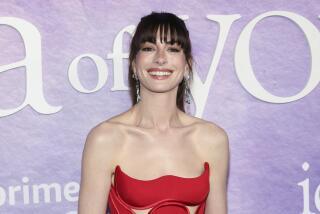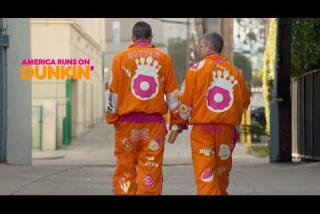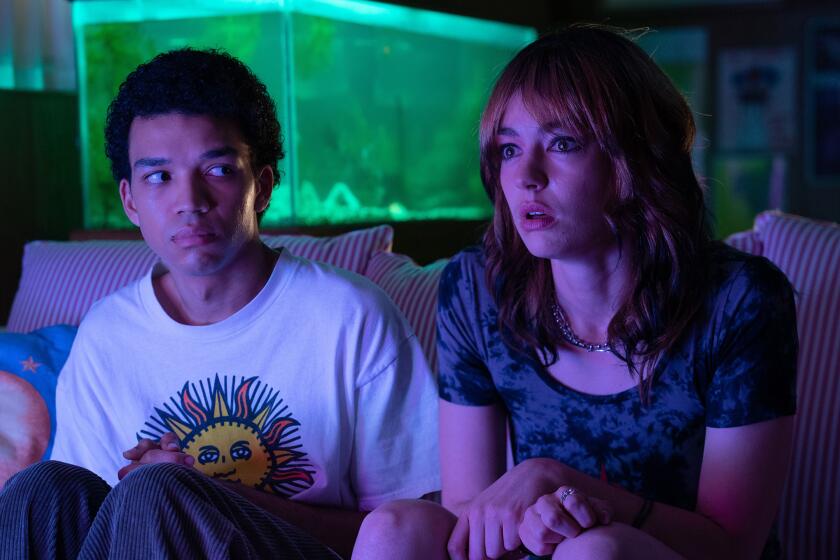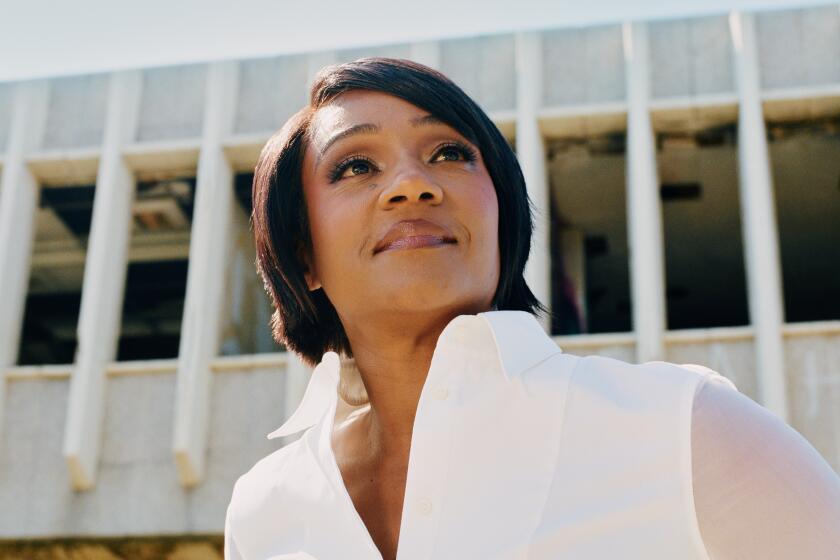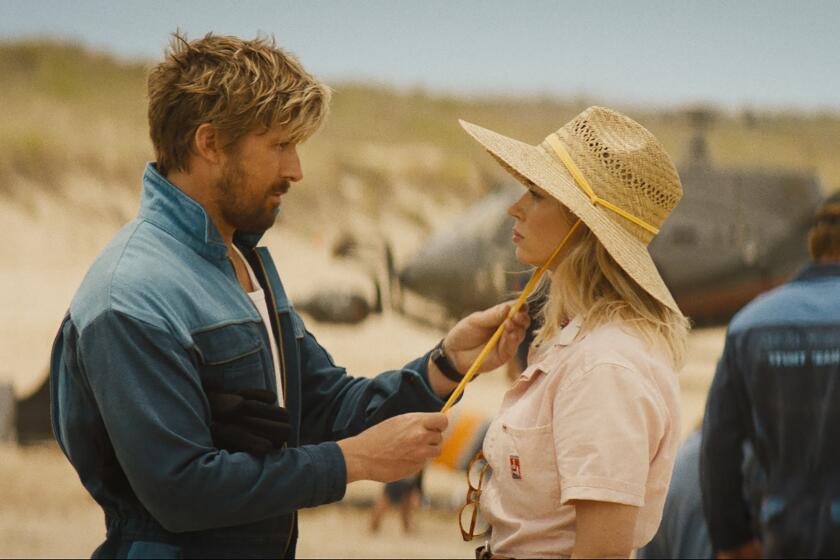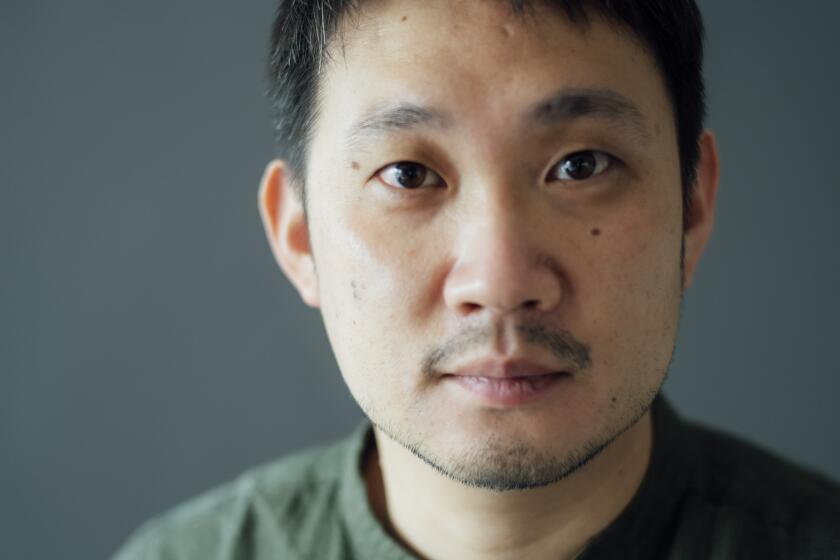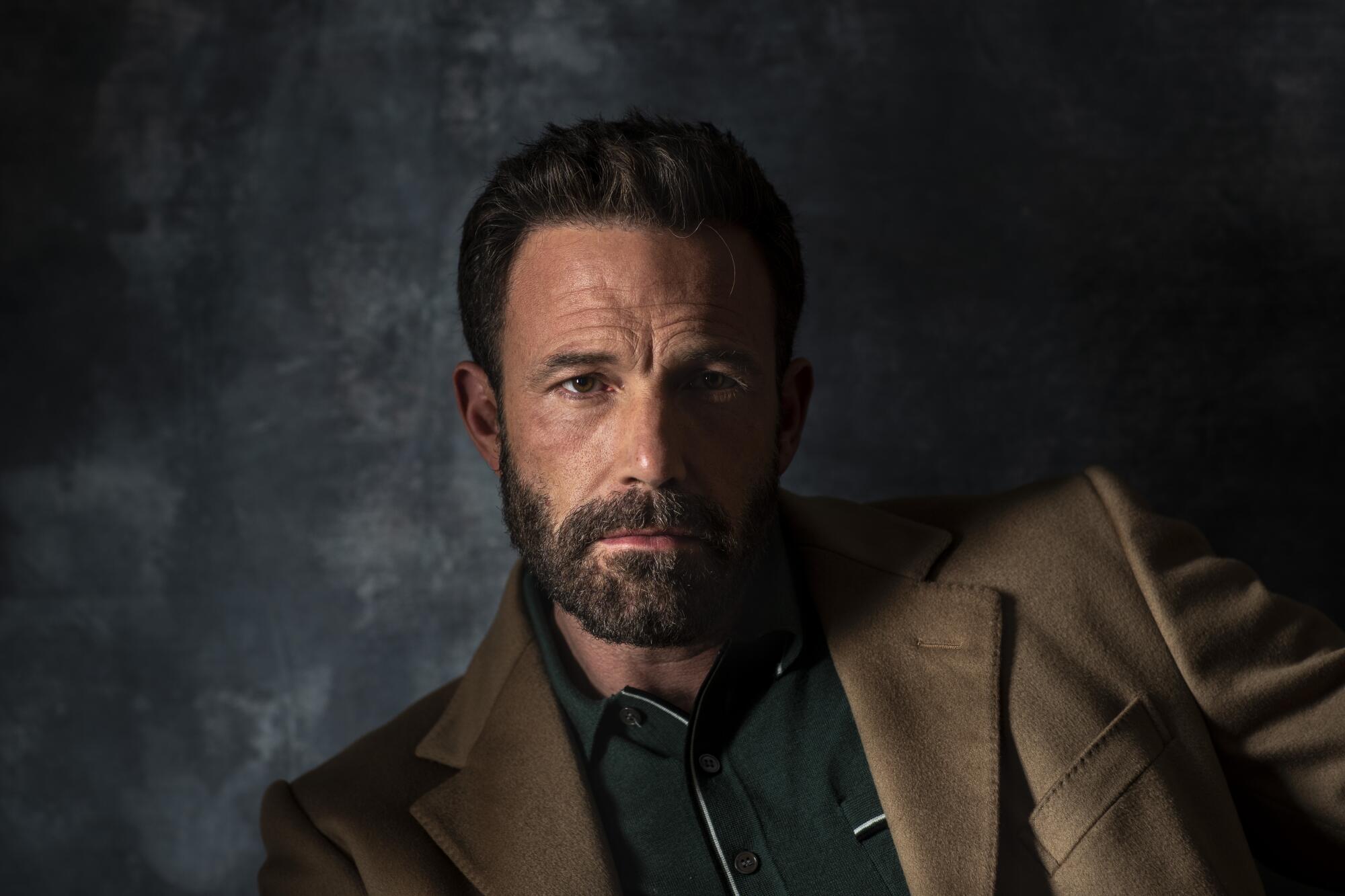
As he earns strong reviews for ‘The Tender Bar,’ Ben Affleck reflects on his career ups (he loved ‘The Last Duel’) and downs (‘Justice League’ was ‘the worst experience’).
Ben Affleck will turn 50 this year. “Eight months and 14 days,” he said on a December afternoon in Los Angeles, letting out a dry laugh. “But who’s counting?“
It’s not surprising that a movie star would approach such a milestone with a certain degree of self-reflection, if not dread. But after a tumultuous decade in his career and his personal life — marked by great highs, including his 2013 best picture win for “Argo,” which he directed, and deep lows, including his divorce from actress Jennifer Garner, with whom he has three children, and his public struggles with alcoholism — Affleck says he is at peace these days.
“The common thread I’ve found from the people I know who’ve turned 50 who are the happiest is that they’ve stopped worrying so much about what other people think,” he said. “I think that’s the gift of that age. When you hit 30, you think, ‘Now I’ve figured it out,’ then you hit 40 and you’re like, ‘I had no idea.’ Now, when I think about being in my 20s, I wonder, ‘How was my brain distinguishable from a gorilla’s at that age?’”
Feeling wrung out after his run as Batman in 2016’s “Batman v Superman: Dawn of Justice” and 2017’s “Justice League,” Affleck has focused in the last few years on less splashy and more character-driven roles, delivering some of his strongest acting work in years. In early 2020, he had a well-received turn as an alcoholic high school basketball coach in the drama “The Way Back,” which opened shortly before the COVID-19 pandemic forced theaters to close down. He earned positive reviews last fall for his against-type performance as a pompous, lascivious count in Ridley Scott’s period drama “The Last Duel,” even as the film — which he co-wrote with Matt Damon and Nicole Holofcener — underperformed at the box office, seemingly a victim of older demographics’ reluctance to return to theaters.
Now, Affleck is co-starring in George Clooney’s drama “The Tender Bar” as a bookish, working-class bartender who becomes a father figure to his nephew, played by Tye Sheridan. Though “The Tender Bar,” which is based on the 2005 memoir by former Times staff writer J.R. Moehringer, has drawn mixed reviews, critics have praised Affleck’s understated performance, for which he has earned a Golden Globe supporting actor nod. Currently in theaters, the film begins streaming on Amazon Prime Video today.
To play the role of Uncle Charlie, Affleck drew not only on his difficult relationship with his father, an aspiring playwright who drank too much and worked for a time as a bartender while Affleck was growing up, but also on his own wellspring of life experience. “There’s something to getting older — those feelings are more accessible to me,” he said. “I know what resentment or regret or ambivalence or nostalgia feel like. I just didn’t know what they felt like at 24.”
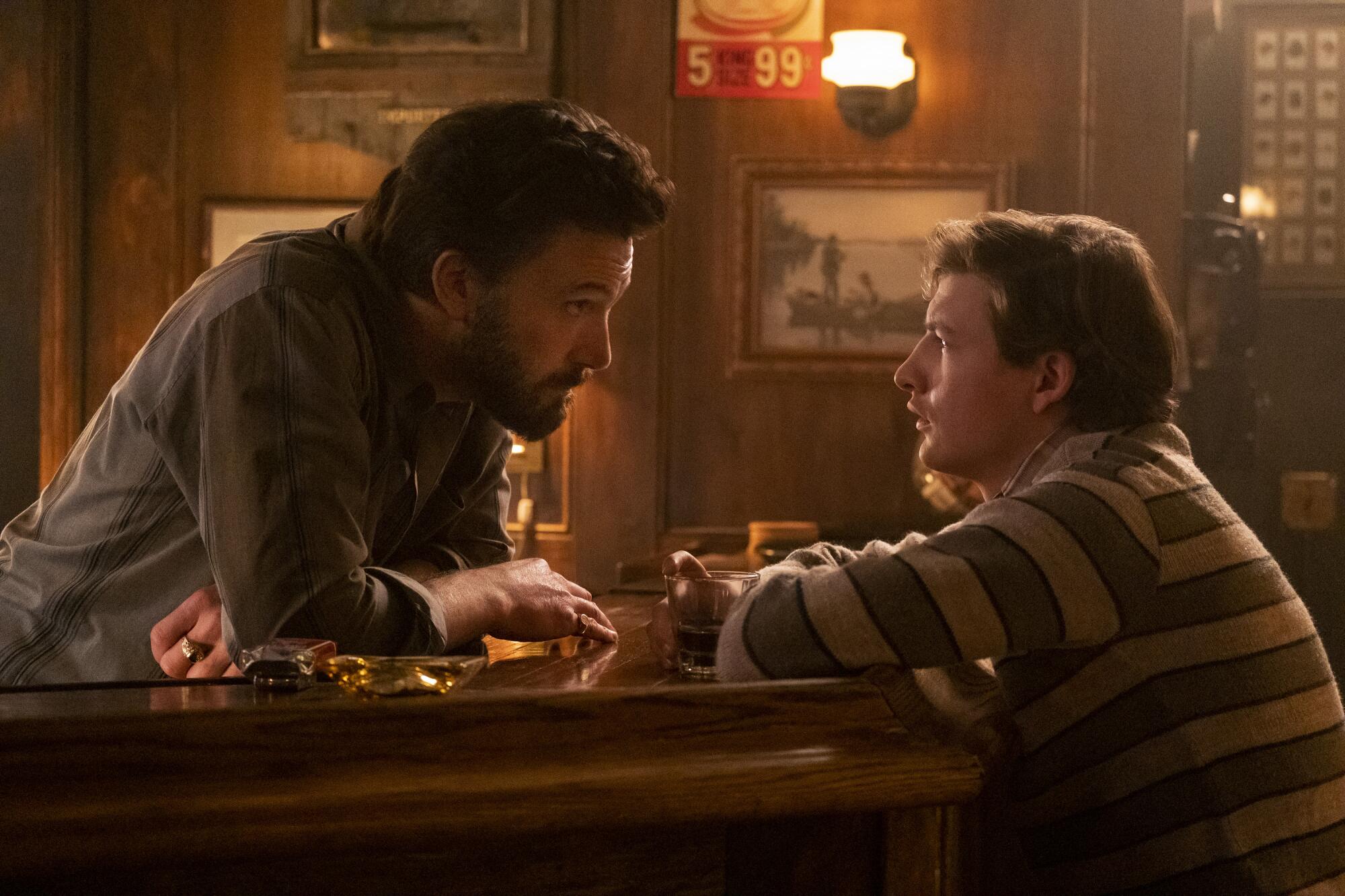
Despite his staying power in Hollywood, Affleck still makes for a big target after so many years in the public eye — and his penchant for spilling his guts in interviews can get him trouble.
Last month, after this interview was conducted, he received backlash for comments he made on Howard Stern‘s radio show about his marriage to Garner in which he said he had felt “trapped” and suggested that was “part of why I started drinking.” Days later, Affleck — who is currently dating one-time fiancée Jennifer Lopez again — said his comments had been misconstrued.
As the ever restless Affleck strives for a kind of stability that has long seemed elusive, The Times spoke with him about his career peaks and valleys, his public image and how he is navigating an industry in flux.
You said recently that it’s only in the last few years that you’ve felt comfortable as an actor. What shifted?
My whole career, I’ve loved acting. But I kind of got to a place where I realized I needed to really define and stick to what my standards were for what I wanted to do and not be drawn into what everyone else thinks. I think it’s a paradox that the more you focus on actually trying to do what you think is interesting and what you want to do — rather than what other people say — the better your work is and the more relaxed you get.
I mean, “The Last Duel” came out and every article was like, “It made no money.” And I really loved the movie, and I liked what I did in it. I was disappointed more people didn’t see it, but I can’t chase what’s going to be cool. I’m happy with it. I’m not preoccupied with notions of success or failure about money or commercial success, because those things really corrupt your choices. Then what happens is the movies are less interesting and you’re less good.
In 2016, I interviewed you three times — for “Batman v Superman,” “The Accountant” and “Live by Night” — and I got the sense that you were under a lot of pressure. Shortly after that, you dropped out of directing and starring in “The Batman” and sought treatment for your drinking. Was that when your priorities changed?
Directing “Batman” is a good example. I looked at it and thought, “I’m not going to be happy doing this. The person who does this should love it.” You’re supposed to always want these things, and I probably would have loved doing it at 32 or something. But it was the point where I started to realize it’s not worth it. It’s just a wonderful benefit of reorienting and recalibrating your priorities that once it started being more about the experience, I felt more at ease.
It was really “Justice League” that was the nadir for me. That was a bad experience because of a confluence of things: my own life, my divorce, being away too much, the competing agendas and then [director] Zack [Snyder]’s personal tragedy [Snyder’s daughter Autumn died by suicide in 2017] and the reshooting. It just was the worst experience. It was awful. It was everything that I didn’t like about this. That became the moment where I said, “I’m not doing this anymore.” It’s not even about, like, “Justice League” was so bad. Because it could have been anything.
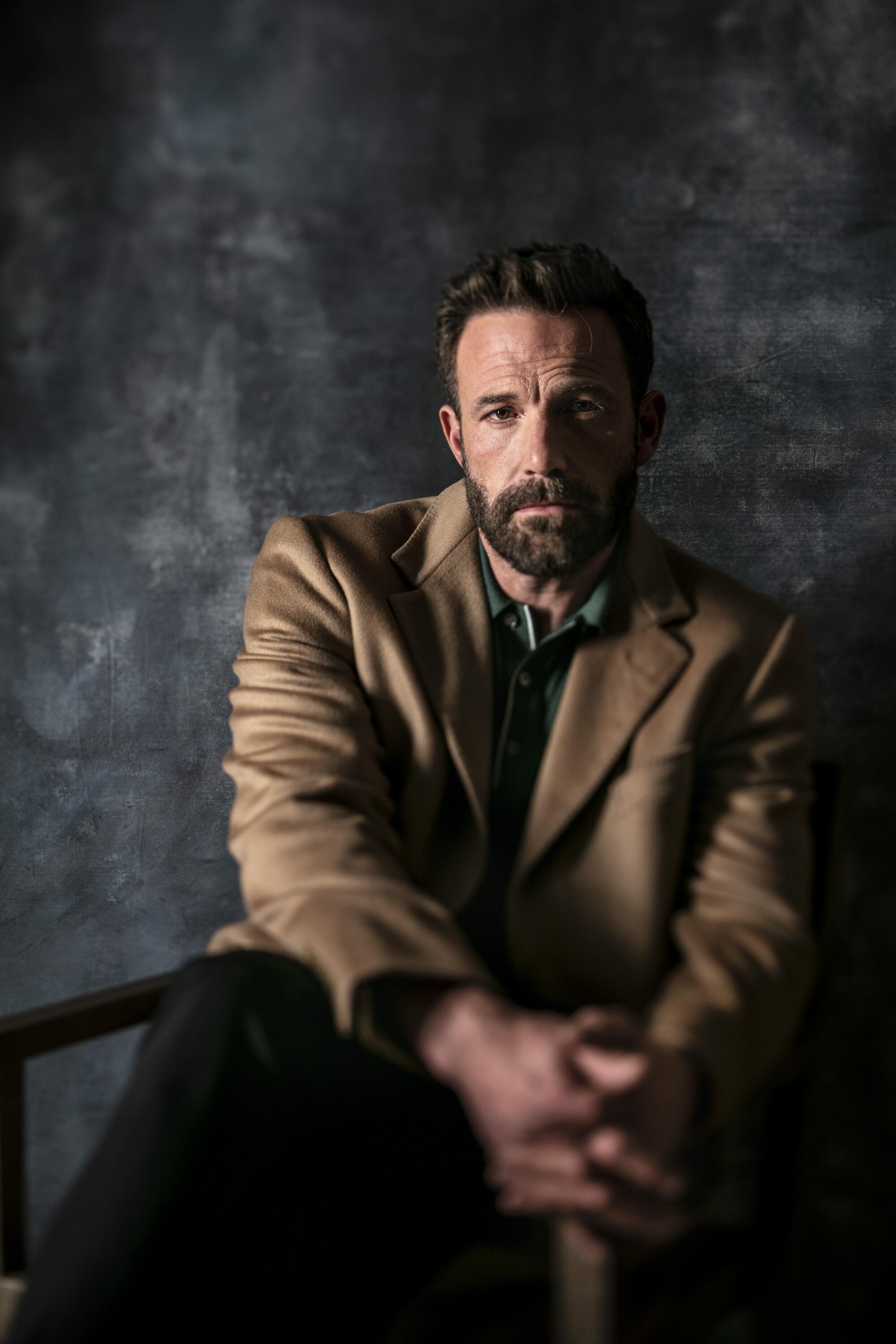
All celebrities go through ups and downs, but there’s a perception that your highs and lows have been more extreme than most. Does it feel that way to you?
I agree. I’m a little wary of saying so, because I think, “Is this going to smack of being self-pitying?” I have definitely had big ups and downs. I don’t know that it’s any more difficult than the average person. It’s just there is something about me — definitely when I was younger in particular — where people felt like collectively they were allowed to say bad things about me: like, “We all kind of don’t like this person, right?”
I think when I was young, people saw me as somebody who had too much or was successful too easily or looked like some kind of cavalier, insincere, callow frat guy. That was nothing like how I felt. I felt like this sort of insecure, anxious, overly verbal kid from Boston who had tried to break into this business and was dealing with his own stuff. But there is an interesting thing about how we come off versus who we are.
I had a therapist once who gave me really good advice. This was 2003 or 2004 and I was really struggling. People were just writing vicious, awful, hateful stuff about me all the time and it really started to affect me. The therapist said, “What I find about criticism is that if you can look at it honestly and take in what resonates with you, then the rest of it you can let go.” And that was a process that got me into directing and gave me the confidence to start doing that.
I got to a place where [the public perception] was so different from who I am that I just stopped reading and stopped caring. But then, as my kids got older and started seeing the internet themselves, that’s the difficult part. Even the “Sad Affleck” meme — that was funny to me. I mean, there’s nobody who hasn’t felt that way at a junket. But then my kids see it and I think, “Oh, are they going to think their dad is fundamentally sad or they have to worry about me?” That’s really tough.
From the outside, it seems like when you’ve had difficulties in your personal life, people have often rallied around your rebound. Does it feel that way to you?
That’s common to all storytelling: The whole architecture of the three-act narrative is you start off a story with somebody, throw rocks at them for two acts until it seems like they can’t possibly make it, and then have them succeed. And there are times my life has at least externally looked like that.
There is something about people going, “Wow, this person really seems like they’re going through a lot of suffering. I feel for them.” But I don’t want to live that way to have you like me.
I’m really happy now, and I feel great. I’m not perfect. I don’t do everything right. But I wake up and feel good about the choices I made the day before, and if I don’t, I address it right away. I’ve got to hope and believe that people will still like the movies I make if I’m not in the midst of something they think of as agonizing.
Getting to experience Jennifer Lopez’s life now and seeing the degree to which a massive social media presence [is valued] is really striking. I’m not sure the option to have 300 million followers was ever available to me, but that ship has probably sailed now.
— Ben Affleck
We’re in this moment when it seems like all the rules that governed the movie business have gone out the window and no one knows what the new rules will be. Is that scary or exciting?
It’s terrifying and liberating, because it’s the Wild West, and nobody really knows what how this is going to work out. It’s a big adjustment. Everybody I talk to in this business is having versions of the same conversation, which is, “Where are people going to watch movies? What kind of movies can be released in theaters? Is this COVID? Is this viewing trends?” I don’t know what the answers are. But there are opportunities.
Entertainment has changed and evolved, historically. Getting kids to watch a whole movie — most of them are watching stuff on YouTube. I feel like I’m 1,000 years old, because I say things to my kids like, “What does this YouTuber do? Like, is it a comedian?” They look at me like, “Are you a moron? They’re a person. They talk.” And some of these people are making a fortune. There’s enormous value.
Getting to experience Jennifer Lopez’s life now and seeing the degree to which a massive social media presence — how that’s valued, how that’s perceived by the people who are willing to invest a bunch of money in what you’re doing — is really striking. I’m not sure the option to have 300 million followers was ever available to me, but that ship has probably sailed now. [laughs]
Social media is really good for selling stuff so you can free yourself from having to always rely on being the flavor of the week. By the way, I’d be thrilled. My thing is, I wish I could sell alcohol. I’ve just got to figure out, what’s my angle? “I don’t drink but if I did….” Every time I joke about that, alcoholics laugh. Other people are horrified, like, “You can’t say that.”
For someone like you who came up in a world in which acting on the big screen and becoming a movie star was the ultimate goal, how do you navigate this new normal?
I’m convinced that there’s a segment of the audience now that is done with movie theaters. It’s just too much of a hassle: You have to pay for parking, pay for this and that. I went out and saw “Licorice Pizza,” and it was amazing. But I hate to say I’m part of that generation — I like to be asleep by 9:30. You know, I probably sound like those people who were like, “Movies were never the same after they introduced sound.” People are resistant to change. We form our identities in certain periods of time and associate that with a lot of stuff that isn’t necessarily connected to them.
Now I just think, “What do I have to do to be in L.A. so I can raise my kids before they all go off to college?” You know, I’d stand out there with the sign waving at people to come into the electronics store — happily — because that’s the most important thing to me by far. You think I’m a sellout or a chump? I don’t care. I’ve got to live with myself, my life and my choices and how that makes me feel. And I’m just glad I figured that out.
This interview has been condensed and edited.
More to Read
Only good movies
Get the Indie Focus newsletter, Mark Olsen's weekly guide to the world of cinema.
You may occasionally receive promotional content from the Los Angeles Times.
